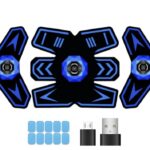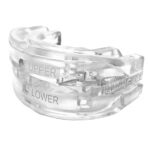
What’s the Best Cough Medicine? Comparing the Effectiveness of Over-the-Counter vs. Prescription
Key Takeaways:
- The selection of cough medicine, whether over-the-counter (OTC) or prescription, should be based on the specific cause and type of cough you have.
- The effectiveness of OTC medications for short-term coughs varies, and consulting a healthcare professional before use is important, especially if pregnant, on other medications, or dealing with underlying health conditions.
- Cough medicines, both OTC and prescription, come in various forms and formulations, including suppressants, expectorants, antihistamines, and combinations.
Dealing with an Irritating Cough: Exploring Medication Options
Is your persistent cough becoming a nighttime nuisance or an annoyance to those around you? An array of prescription and over-the-counter (OTC) cough remedies exists, featuring ingredients designed to either suppress or alleviate your cough. However, discerning their effectiveness can be challenging. So, which option should you choose to address your specific cough issue?
Exploring Over-the-Counter Cough Aids
The most common form of cough is the acute cough, often linked to a viral upper respiratory tract infection (URI), though it can arise from other sources. This condition has led to a substantial market for the development and promotion of cough-relief drugs.
A variety of OTC cough treatments are available, ranging from syrups and pills to lozenges. Notably, not all OTC cough medications are equally effective, nor do they exert the same mechanisms of action.
Suppressing the Cough
Cough suppressants (antitussives), such as dextromethorphan (Robitussin, Delsym), regulate the cough reflex. These tend to be more suitable for a “dry” cough, typically resulting from irritation.
In contrast, expectorants like guaifenesin (Mucinex) work by thinning and loosening mucus in the throat, facilitating easier expulsion. They prove more effective for a “wet” or productive cough.
Certain products, such as menthol cough drops, combine a cooling effect with airway expansion to curtail coughing.
Addressing Allergies and Congestion
Antihistamines like chlorpheniramine and clemastine, as well as decongestants like pseudoephedrine (Sudafed), target the post-nasal drip that can trigger coughing. It’s important to note that certain antihistamines induce drowsiness, while decongestants might interfere with sleep.
The Synergy of Combination Products
You’ll also come across combination products containing an assortment of cough remedies, exemplified by Dimetapp and Mucinex DM. Yet, if OTC solutions prove insufficient and your cough hinders your daily life or sleep, consulting a healthcare provider about prescription alternatives is advisable.
Exploring Prescription Cough Solutions
In cases where coughing persists, consider benzonatate (Tessalon) capsules. This prescription, non-narcotic antitussive medication anesthetizes the airways, alveoli, and pleura in the lungs. It’s FDA-approved for adults and children over 10, with recommended doses provided by your healthcare provider.
Regarding inhalers, if wheezing accompanies your cough, an albuterol inhaler like Proventil or ProAir may be prescribed for acute bronchitis. While rescue inhalers could be suitable for respiratory conditions like asthma and chronic obstructive pulmonary disease (COPD), their routine usage hasn’t shown definitive benefits for cough severity or duration.
Codeine-based cough suppressants, such as promethazine/codeine, should be reserved for short-term adult use due to their habit-forming potential.
Unpacking the Research
Do these cough medications truly deliver results? A 2014 review underscores the uncertainty surrounding OTC products. The review examined 29 studies involving antitussives, expectorants, antihistamines, and more. Less than half exhibited benefits for acute cough, while others indicated minimal distinction from placebos.
Overall, evidence supporting or refuting the efficacy of these medications for acute cough remains limited, emphasizing the need for further research.
Navigating the Optimal Choice
OTC cough medications can prove convenient for managing an acute cough, tailored to your cough’s origin and characteristics while sidestepping potential health conflicts. If your cough is dry, an antitussive might be beneficial; for productive coughs, an expectorant aids mucus expulsion. Combination products can encompass antitussives, expectorants, antihistamines, and decongestants, addressing multiple symptoms at once.
However, it’s crucial to ensure unnecessary ingredients aren’t ingested, particularly for those pregnant, on other medications, or grappling with health conditions. If OTC remedies fall short, a healthcare provider can suggest prescription alternatives for potential relief.
The Bottom Line
Various OTC cough medicines are available to manage acute coughs, each yielding distinct outcomes, with mixed evidence of effectiveness. When OTC options prove insufficient, prescription alternatives may offer a potential solution. Should your cough extend beyond a week or be accompanied by fever or breathing difficulties, consulting a healthcare provider is paramount, as it might signify an underlying issue.


















